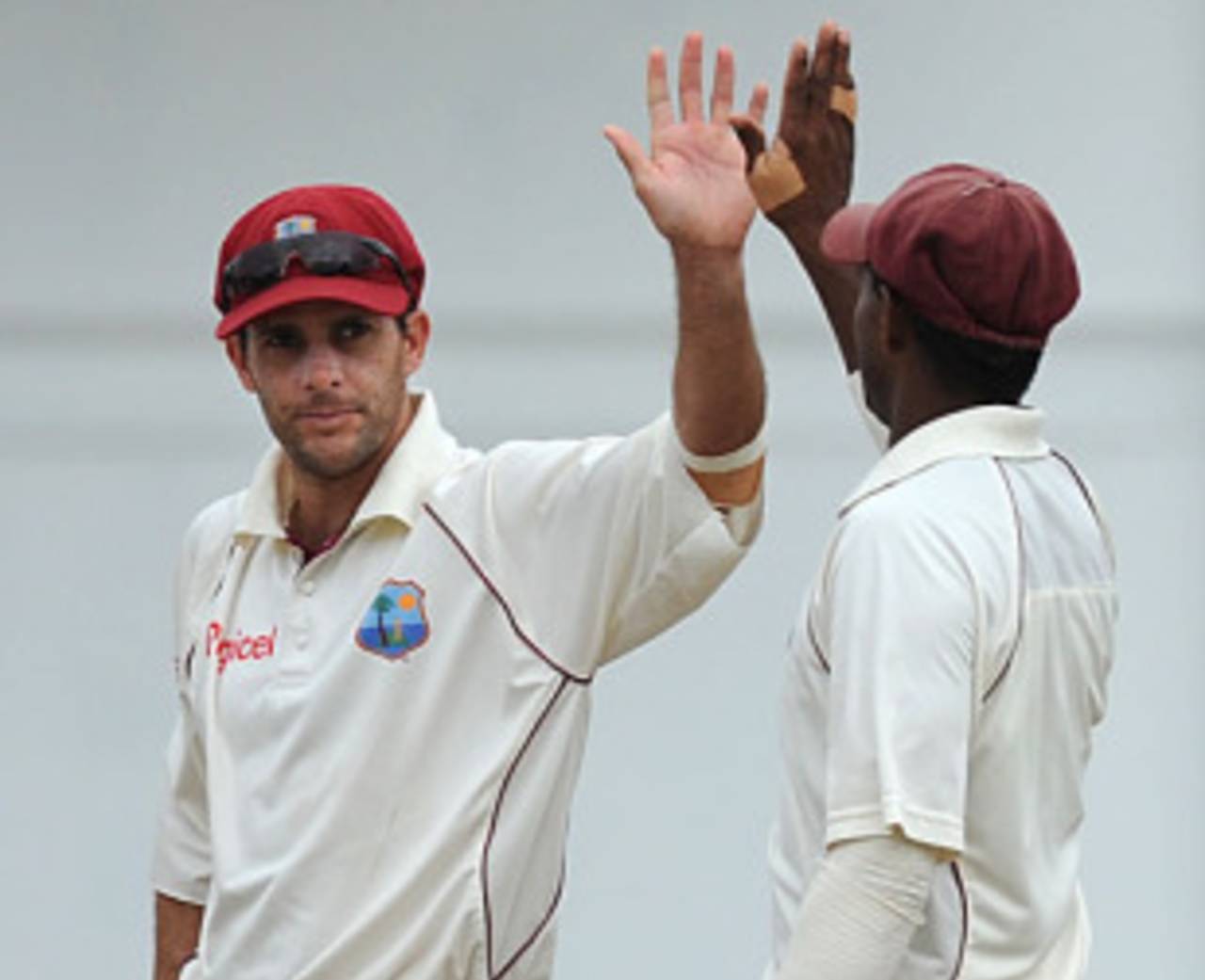"Go home white boy, you're no good. You couldn't make it there, so why are you here?" It's 2007 and
Brendan Nash is batting at the trials in Jamaica. A few locals came on all four days of the trials and gave him a hard time. Their anger was perhaps understandable. Nash, whose father was a Jamaican Olympic swimmer, had arrived from Australia and perhaps the locals felt he had blocked a young Jamaican from getting an opportunity. How did Nash feel at the time?
"It was a little disheartening," he told ESPNcricinfo, "to actually get it in the country you are trying to play for. I think it taught me a lot about my character and how to build it. My father was actually with me during the first six-eight months. He was here in Jamaica so he was a little concerned too. My father was a well-known sportsman in Jamaica, so that kind of eased the tension."
Nash has been
dropped from the West Indies squad for the Barbados Test against India although he was the vice-captain. He had made only 1 and 9 at Sabina Park, and only 54 runs in his previous six innings. The future is now uncertain, as there are a couple of youngsters pushing for places in the middle order. It is the most serious disappointment Nash has faced since his Test career started in a hurry in December 2008.
Nash did not think he would play for West Indies, even when he first played for Jamaica. His form was great, he got along with his captain, Chris Gayle, and suddenly the ambition of becoming a Test cricketer grew after six to eight months. "I remember my first conversation with Chris. He said to me, 'You are one of us, don't worry about what anyone's saying to you. If anyone troubles you, I am here for you.' Obviously, as much as I had played with great cricketers back home [in Australia], to have a Chris Gayle, this was his country, and to have him come and say that to me was a great thing. It was my first or second trial game. So it helped me settle down quicker."
Nash keeps saying "We" when he talks about West Indies. The question had to be asked. How long did it take to say "we"? "It's funny. It didn't take too long," he says. "There are still problems with accent and Jamaicans find it funny when I say that (we). But I have broken lots of barriers and it's easy now."
He had a connection with the West Indies cricketers as he was growing up. His mother would invite the visiting West Indians home for a meal. Nash remembers Courtney Walsh ducking to avoid the arches at home. He had a poster of Curtly Ambrose plastered on his wall at boarding school.
Even after Nash settled into the West Indies team, he faced other every-day cultural challenges. He and his wife like to sit and talk in a bar. They found it wasn't easy to do. "Here in Jamaica it's about dancing. To go out to a bar is not to necessarily drink, but it's more of a nightclub dancing culture. I was a bit of a rum drinker in Australia. So no problems on that count."
There were other quirks, some of which he can't still get used to. "In the Caribbean, we are always trying to be the most important person in the party," he says. "I am not comfortable doing it. I like to stay in the background. That's who I am. I don't think I am going to change myself at this stage."
West Indies weren't winning much when Nash made his debut and he says he tried to do his bit to improve the work ethic. "When I came in, Queensland were just coming into a period of winning. Unfortunately I have come to West Indies when they haven't been winning. That's the biggest difference - the mindset and the work ethic. When you are winning, hard work becomes easier, when you are not winning it's hard to see the light at the end of the tunnel. That's what I have been trying to bring here - develop the work ethic."
At the end of the chat, Nash tries to put the West Indian part of his career in perspective. "I am glad that I could come and live this life. As much as I love the things I have achieved, the biggest thing for me is that in some small way I have helped West Indies try and take the steps [to return to] where they were."
